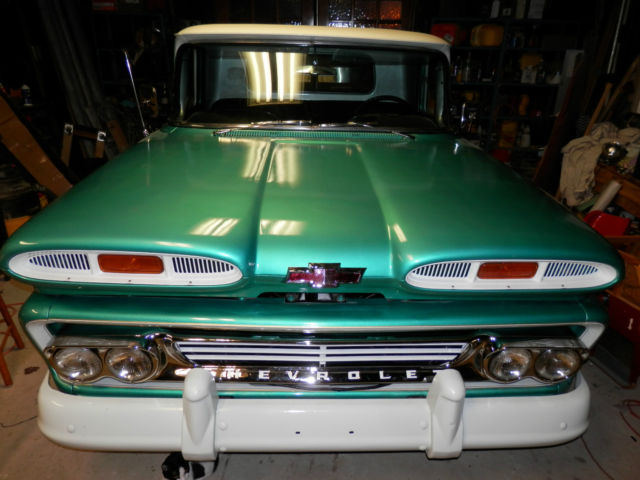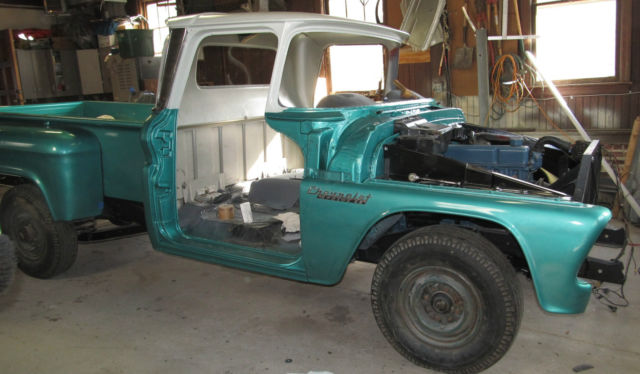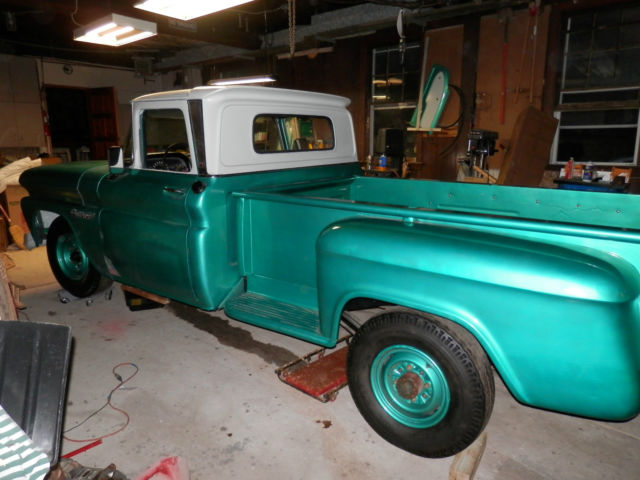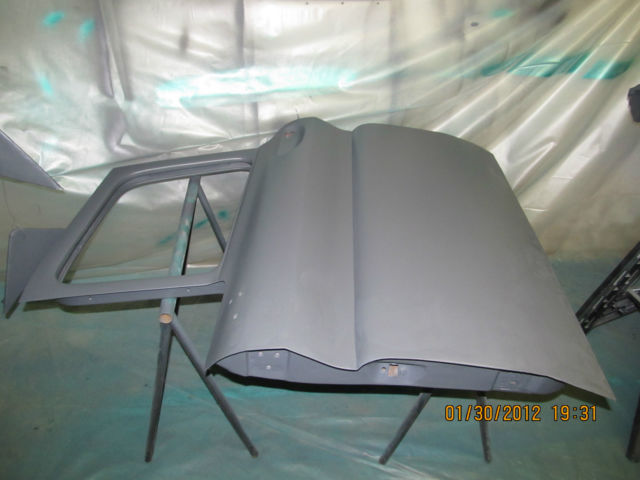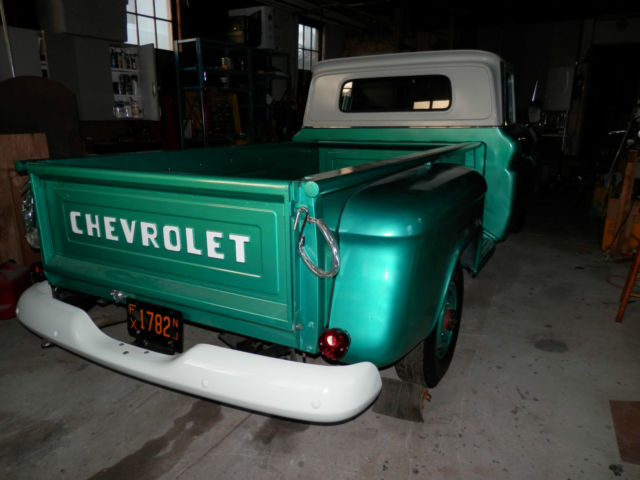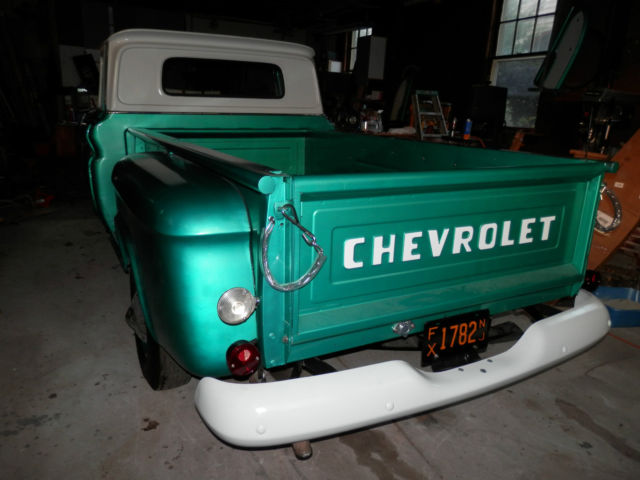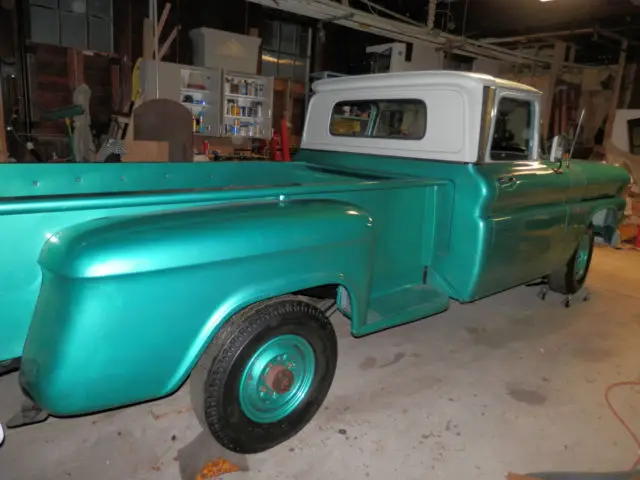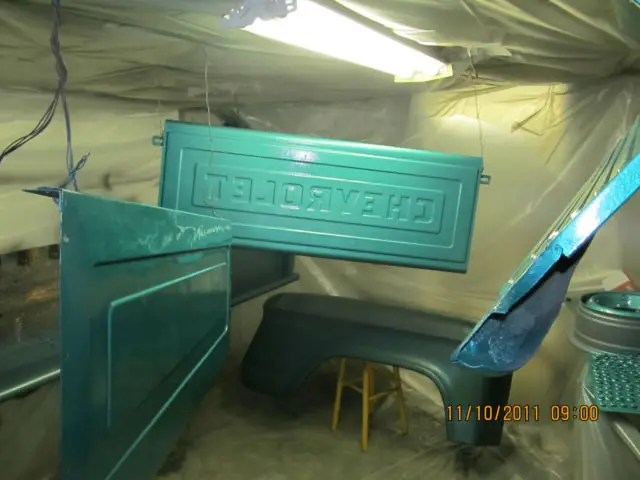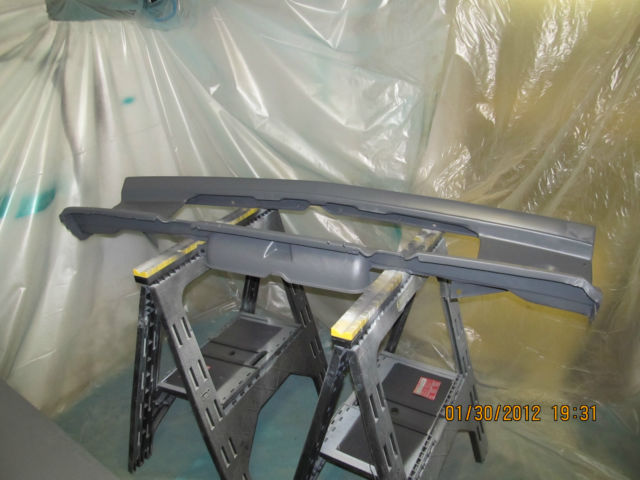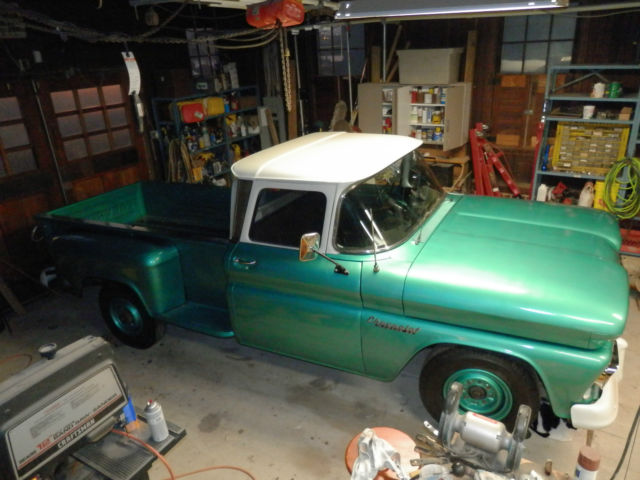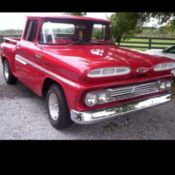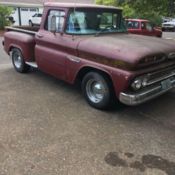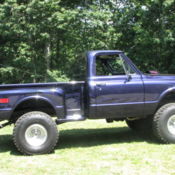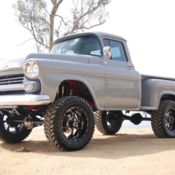Antique 1960 Chevy Apache 20 Custom Trim 3/4 Ton Step Side Pickup Fully Restored
| Condition: | Used |
| Make: | Chevrolet |
| Model: | Other Pickups |
| SubModel: | Apache |
| Type: | Step Side Long Bed |
| Trim: | Custom Apache |
| Year: | 1960 |
| Mileage: | 86,180 |
| Color: | Green & White |
| Fuel: | Gasoline |
| Transmission: | Manual |
| Drive type: | RWD |
| Interior color: | Gray |
| Vehicle Title: | Clear |
| Item location: | Absecon, New Jersey, United States |
| Extras |
| Listed by | Private seller |
Description of 1960 Chevrolet Other Pickups Apache |
|||||||
|
This 1960 Chevy Apache Custom has been under restoration for several years. I personally stripped this truck down to every individual and separate part except for the gear box, ear end and lower end of the engine. There is simply too much to list as new on this truck. All of the rust was removed, ew metal welded in and new paint applied. Every part disassembled was cleaned, epaired, ubricated and resealed before assembly. What was bad or out of tolerance was replaced with new old stock Chevrolet parts. There are no reproduction parts on this truck. The restoration took me 9 years and the pictures show the result. I have to sell this truck now due to the cost of my health problems and I hate to part with it. She needs her valves adjusted and the driver's door reshot with new paint which I will include with the sale. The person who is truly interested in this truck will get all the extra and old parts with it upon purchase as well as all the receipts for what's new. The underside of this truck was powder coated before assembly and about the only original mechanical system left intact is the exhaust. If there are any questions please write me before making an offer or bidding.
|
 Home
Home Contact us
Contact us NEWEST CARS
NEWEST CARS SELL YOUR CAR
SELL YOUR CAR FAQ
FAQ